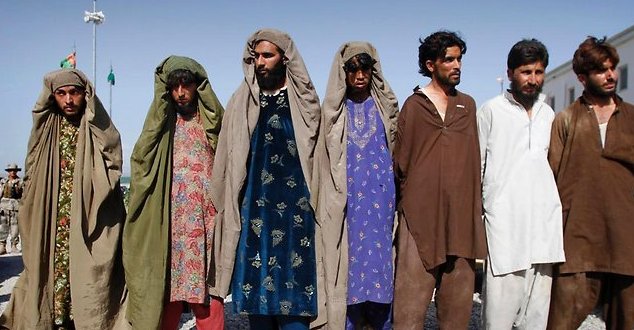
Okay, the real story:
AFGHAN police have arrested seven armed insurgents who disguised themselves as women by wearing burqas, officials said.
Interior ministry spokesman Siddiq Siddiqi said that the men, who carried light weapons with at least one in a suicide vest, were captured in Jalalabad, the capital of the eastern province of Nangarhar.
He said the men wore the all-enveloping veil as part of their disguise and were planning attacks on government targets, but gave no further details.
H/T to Roger Henry, who notes:
Have a look at these delectable Afghan stunners, Afghanistan’s best!
I do so like the look of coy modesty, what possibly could have given them away?
They could do with a little grooming.



